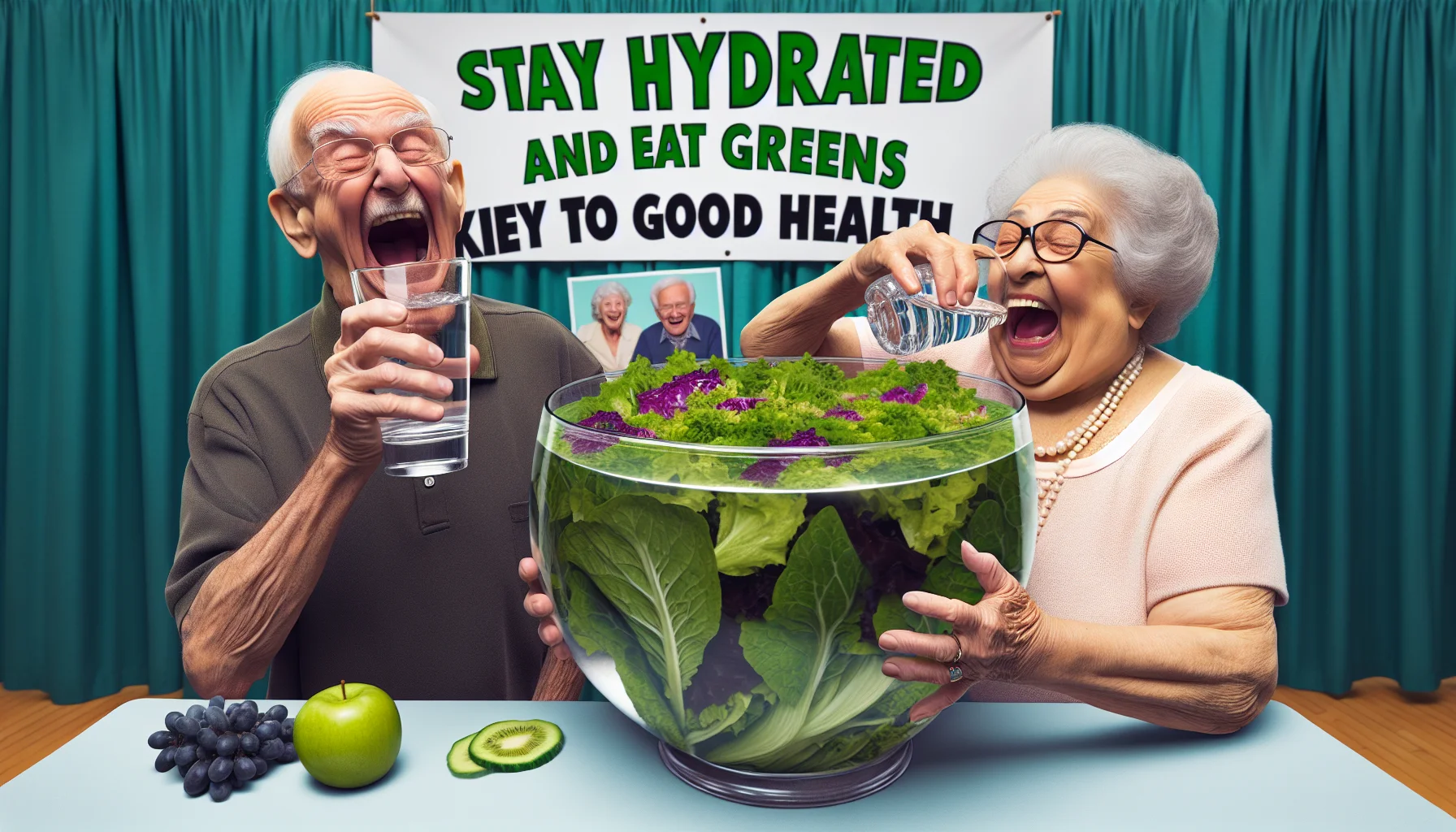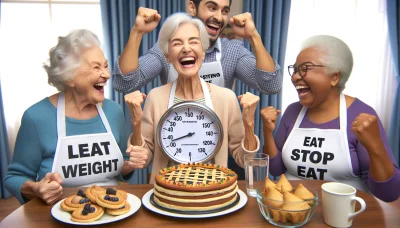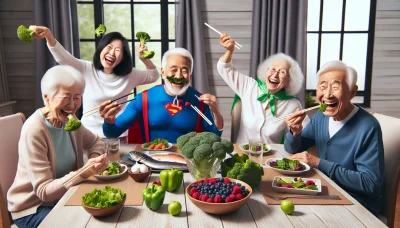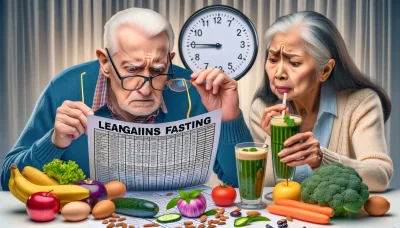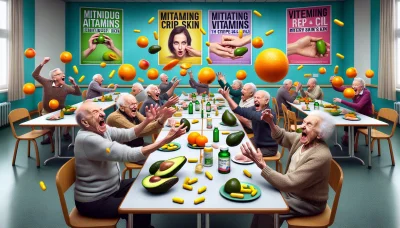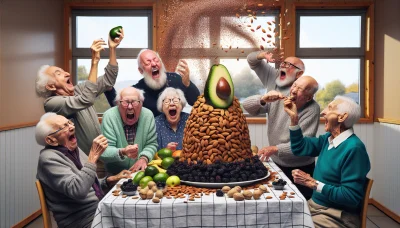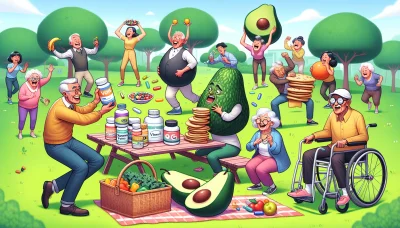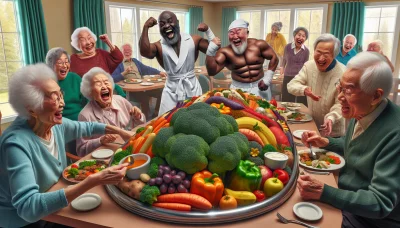Can an elderly person die from dehydration Quiz
Test Your Knowledge
Question of
Understanding Dehydration in the Elderly
Causes of Dehydration in Seniors
- Decreased Thirst Sensation
- Medication Side Effects
- Reduced Kidney Function
Symptoms and Warning Signs
Mild to Moderate Symptoms
These can include symptoms such as dry mouth, fatigue, and dizziness.
Severe Dehydration Indicators
Signs of severe dehydration include very dry skin, rapid heartbeat, and confusion.
When to Seek Medical Attention
If severe symptoms of dehydration are present, it is crucial to seek medical help immediately.
Prevention and Management Strategies
- Hydration Schedules
- Monitoring Fluid Intake and Output
- Adapting the Living Environment
Setting regular reminders to drink fluids throughout the day can help maintain hydration.
Keeping track of how much fluid is consumed versus how much is expelled can help identify risks early.
Ensuring easy access to fluids and promoting a living environment conducive to regular fluid intake is key.
The Risks of Dehydration in Older Adults
-
Short-Term Complications
- Urinary Tract Infections
- Kidney Stones
- Electrolyte Imbalance
-
Long-Term Health Consequences
- Chronic Kidney Disease
- Cognitive Decline
- Increased Fall Risk
-
Dehydration and Mortality
- Impact on Life Expectancy
- Complications Leading to Death
- Studies on Dehydration and Mortality Rates
Recognizing Dehydration in Dementia Patients
Unique Challenges in Dementia Care
- Communication Barriers
- Behavioral Issues and Refusal to Drink
- Memory Problems Affecting Hydration Habits
Tailoring Hydration Strategies for Dementia
- Visual Cues and Reminders
- Flavor Enhancers and Preferred Beverages
- Assistance with Drinking
Collaborating with Healthcare Providers
- Regular Check-Ups
- Caregiver Training and Support
- Advanced Care Planning
Nutrition and Hydration: The Elderly Diet Connection
Balancing Fluids with Nutrient Intake
- Importance of Water-Rich Foods
- Managing Diuretics in the Diet
- Nutrient-Dense Foods for Hydration Support
Special Diets and Hydration Needs
- Heart-Healthy Diets and Fluids
- Diabetic Diets and Hydration Monitoring
- Renal Diets and Fluid Restrictions
Meal Planning for Optimal Hydration
- Daily Meal Schedules
- Incorporating Soups and Broths
- Hydrating Snack Ideas
The Role of Caregivers in Preventing Dehydration
Education and Awareness for Caregivers
- Understanding the Signs of Dehydration
- Learning About Fluid Requirements
- Recognizing the Effects of Various Medications
Practical Tips for Encouraging Fluid Intake
- Offering Favorite Beverages
- Creating a Pleasant Drinking Experience
- Using Technology and Reminders
Handling Resistance to Drinking
- Gentle Persuasion Techniques
- Addressing Underlying Causes of Resistance
- When to Involve Medical Professionals
Dehydration and Hospitalization in the Elderly
Common Reasons for Hospital Admissions Due to Dehydration
- Acute Illnesses Exacerbating Dehydration
- Post-Surgical Complications
- Severe Infections and Fevers
Treatment Options for Severe Dehydration
- Intravenous Fluids and Rehydration
- Monitoring Vital Signs and Organ Function
- Adjusting Medications Post-Hospitalization
Post-Hospital Recovery and Rehydration
- Rehabilitation and Physical Therapy
- Ongoing Monitoring for Recurrence
- Transitioning Back to Home Care
Dietary Supplements and Hydration in Seniors
Evaluating the Need for Supplements
- Nutritional Deficiencies and Hydration
- Consultation with Dietitians or Nutritionists
- Blood Tests and Health Assessments
Types of Supplements That Affect Hydration
- Water-Soluble Vitamins
- Electrolyte Supplements
- Herbal Supplements with Diuretic Effects
Safe Use of Supplements for Hydration Maintenance
- Following Recommended Dosages
- Awareness of Interactions with Medications
- Regular Reviews of Supplement Regimens
Community Resources and Support for Elderly Hydration Care
-
Local Health Services and Programs
- Senior Centers Offering Nutrition Workshops
- Public Health Campaigns on Elderly Hydration
- Access to In-Home Caregiver Support
-
Technology Aids for Hydration Monitoring
- Smart Water Bottles and Hydration Apps
- Wearable Devices Tracking Fluid Balance
- Automated Alert Systems for Caregivers
-
Educational Materials and Outreach Initiatives
- Pamphlets and Guides on Elderly Hydration
- Online Resources and Webinars
- Community Workshops and Seminars
